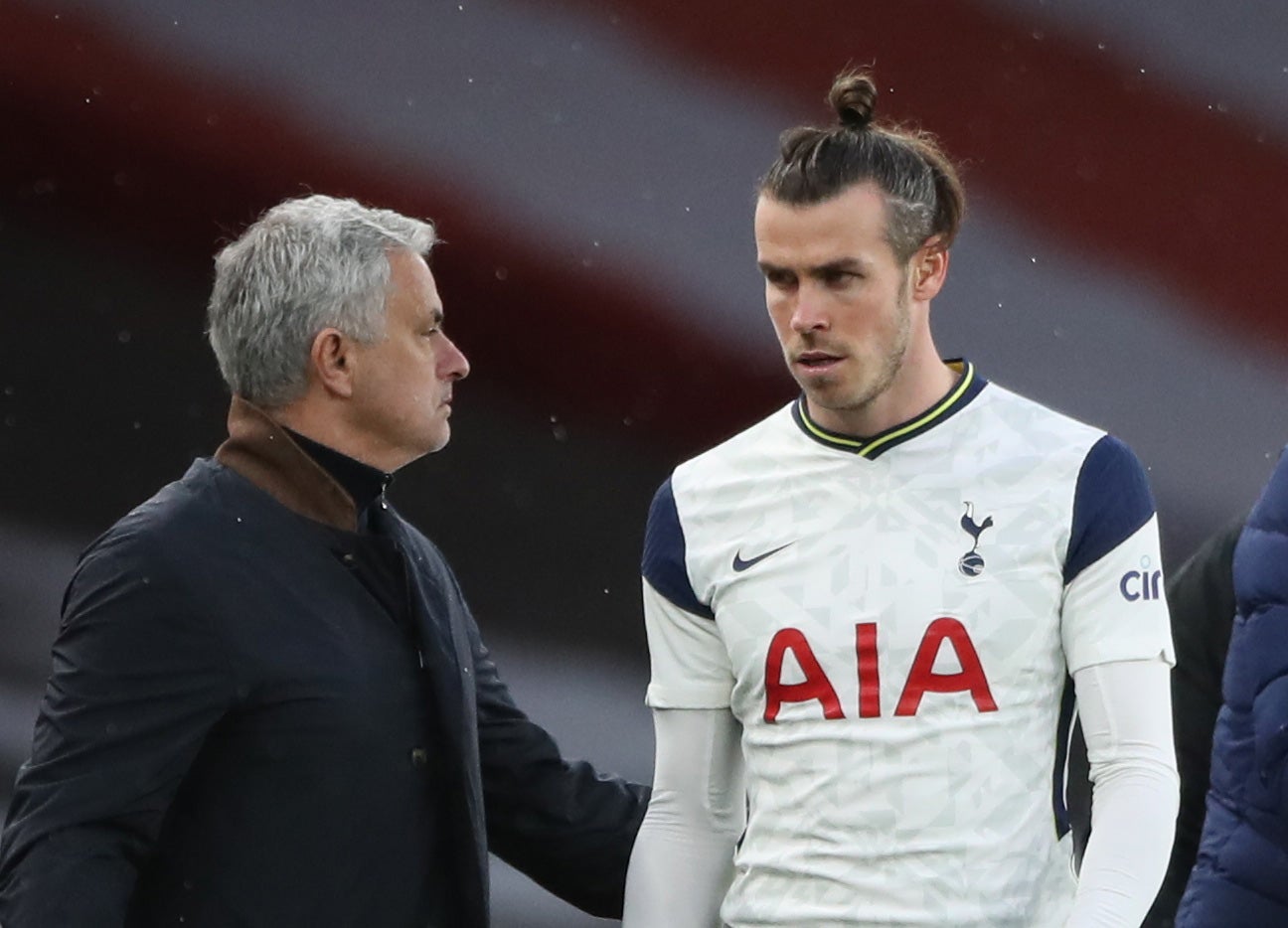Tottenham’s passive play leaves them too reliant on individual brilliance
Erik Lamela’s magical goal stood out not only for its inventiveness but because it was such a rare display of attacking intent for Spurs during the north London derby

Your support helps us to tell the story
From reproductive rights to climate change to Big Tech, The Independent is on the ground when the story is developing. Whether it's investigating the financials of Elon Musk's pro-Trump PAC or producing our latest documentary, 'The A Word', which shines a light on the American women fighting for reproductive rights, we know how important it is to parse out the facts from the messaging.
At such a critical moment in US history, we need reporters on the ground. Your donation allows us to keep sending journalists to speak to both sides of the story.
The Independent is trusted by Americans across the entire political spectrum. And unlike many other quality news outlets, we choose not to lock Americans out of our reporting and analysis with paywalls. We believe quality journalism should be available to everyone, paid for by those who can afford it.
Your support makes all the difference.In the Tottenham Hotspur dressing room, a few players were naturally telling Erik Lamela not to blame himself, and there was a truth to the idea the defeat wasn’t his fault. The reality was that the north London derby had long got away from Jose Mourinho’s side by the time of the Argentine's red card. They were behind, and couldn’t get on the front foot.
A lot of that was down to Arsenal’s impressively proactive approach, but some of it to Mourinho’s, which was the exact opposite of that.
There was a bigger question from that. Given that Spurs had seemed to turn the corner in the last few weeks, and that their forwards were back on such form – especially Gareth Bale – why didn’t they go with that? Why didn’t they take the game to Arsenal?
As promising as Mikel Arteta’s young side are, they are still very much a work in progress, as illustrated by their position in the table.
There shouldn’t be anything to fear for Spurs, really. By contrast, Arsenal should have been concerned by the quality of the Spurs’ attack. The fear beforehand was that Bale, Harry Kane and Son Heung-Min could run amok. Instead, Spurs played as if they were the inferior team.
Mourinho might well point to that late flurry as evidence of what he actually wants, but it pales next to long periods when his team just sit back. The Portuguese insists he doesn’t instruct his players to do that, but much more telling is the number of times it happens.
We’ve seen this so often – right down to the futile late rally.
It was, oddly, why the brilliant Lamela goal stood out all the more. It was the only piece of proper attacking play – let alone shot – Spurs had for a good 75 minutes. That is also indicative of the approach.
So much of Mourinho’s attacking remains dependent on top attackers just coming up with something different, rather than anything coherent or constructed. It is why they are so painfully dependent on spells of form, like the one Bale has just had.
He was anonymous here. Mourinho later said Bale was missing “intensity”, along with Tanguy Ndombele. Bale still needs that big-game display, to go with his goalscoring resurgence.
Mourinho didn’t directly accuse the Welsh forward of “hiding”, but it said generally about his team. Maybe that’s a consequence of something wider, rather than any kind of moral failing in the way that’s implied.
It is also why there was a real virtue to Arteta’s first derby win – all the more so since he dropped Aubameyang for being late to arrive at the stadium.
Arsenal have many promising young players, but they don’t have prime talent. And yet they were the braver team. That is a product of the system, which now looks so much better amid the superior form of attackers like Emile Smith Rowe and Bukayo Saka.
Something definable and encouraging is definitely there with Arteta. It might take more development, it might take a few better players in key areas, but the right principles are in place.
The key difference is that they are not so dependent on individual inspiration. The attacking system underlying it is more substantial.
Spurs’ challenge for a Champions League, due to their superior quality, is admittedly more substantial right now. They’re still in a relatively good place for the season, and can still finish top four while winning two trophies.
What was so frustrating about this, though, was how they dropped off so drastically, especially in terms of performance. It saps momentum, but also sees them fall further behind in that Champions League chase. A cushion between them and Chelsea has now been developed. Thomas Tuchel’s side are six points ahead with a game more played.
Arsenal are meanwhile only four points off Spurs. That isn’t something to fault right now, but it feels like Mourinho could look more at the emphasis of this team.
A constant wonder of this season, and maybe something that could become its defining question, is why he doesn’t play more to the strength of his attackers.
Arteta plays in a way that isn’t so dependent on the strength of his. It was the difference in this game, and may end up the difference in the medium-term future.

Join our commenting forum
Join thought-provoking conversations, follow other Independent readers and see their replies
Comments